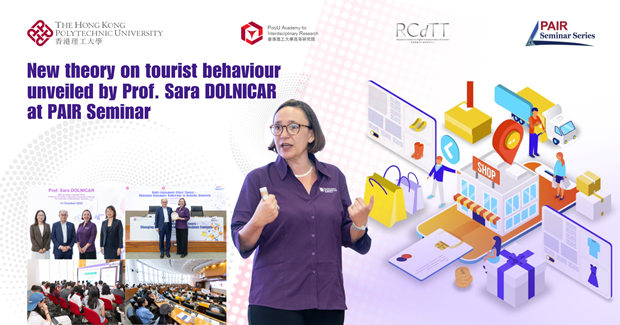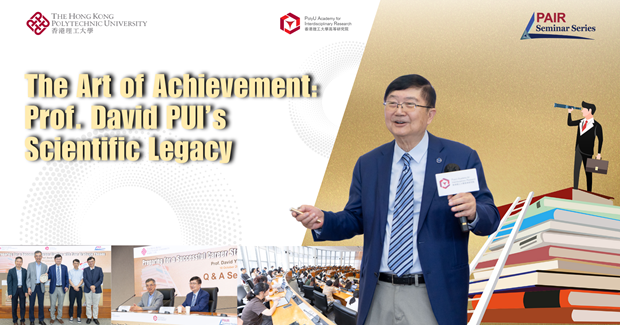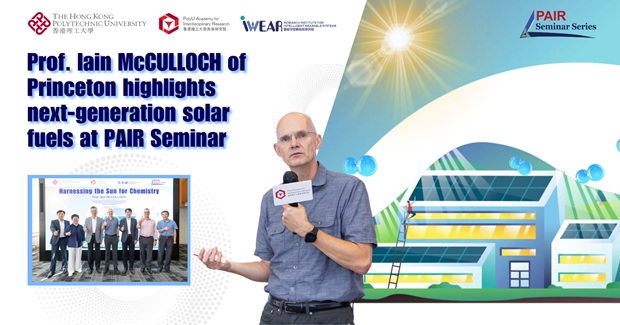At the PAIR Seminar on 18 November 2025, Prof. CUI Zhanfeng of the University of Oxford shared the latest development in Advanced Therapy Medicinal Products (ATMPs). His presentation titled “AI and Biomanufacture of ATMPs” attracted about 100 in-person participants and an online audience of over 21,000 across various social media platforms.
Prof. Cui began his presentation by outlining the current progress of ATMPs, including tissue engineering, stem cell and cell therapies, and gene therapies. Biomanufacturing of ATMPs presents a range of complexities and challenges due to the intricate nature of these therapies. The manufacturing processes often require highly specialised facilities and equipment to ensure product safety, consistency and efficacy. Maintaining stringent quality control is particularly challenging, as ATMPs are predominantly patient-specific or involve living cells that are sensitive to environmental conditions. Regulatory requirements are rigorous and continually evolving, necessitating robust documentation and validation procedures. Additionally, scaling up production from laboratory to clinical and commercial levels can be difficult, as processes that work on a small scale may not translate seamlessly to mass production. These factors, combined with the need for skilled personnel and high production costs, make ATMP biomanufacturing a complex and demanding endeavour.
Prof. Cui therefore suggested that AI has significant potential to reduce the costs of biomanufacturing ATMPs by optimising various stages of the production process. AI-driven analytics can streamline process development by rapidly analysing large datasets to identify optimal conditions for cell growth, gene editing or tissue engineering, thereby reducing the need for costly trial-and-error experimentation. Machine learning algorithms can predict and prevent manufacturing deviations, improving batch consistency and minimising waste. AI can also enhance supply chain management by forecasting demand and optimising inventory, thus reducing storage and material costs. Furthermore, automation powered by AI can reduce labour costs and increase throughput by enabling real-time monitoring and control of complex bioprocesses. Collectively, these advancements can make ATMP production more efficient, scalable and affordable, ultimately increasing patient access to these cutting-edge therapies.
Following the presentation was a lively question-and-answer session moderated by Prof. Larry CHOW Ming-cheung, Head and Professor of Department of Applied Biology and Chemical Technology. Both the on-site and online audiences engaged in an in-depth discussion with Prof. Cui.
Please click here for an online review.
| Topics | PAIR Seminars |
|---|---|
| Research Units | PolyU Academy for Interdisciplinary Research |
You may also like











